Food AmericanaThe Remarkable People and Incredible Stories behind America’s Favorite Dishes
Whet Your Appetites for A Fascinating History of American Food
#1 New Release in History Humor, Food & Cooking, and Media Tie-In Cooking
David Page changed the world of food television by creating, developing, and executive-producing the groundbreaking show Diners, Drive-Ins and Dives. Now from the two-time Emmy winner David Page comes the book Food Americana, an entertaining mix of food culture, pop culture, nostalgia, and everything new on the American plate.
The remarkable history of American food. What is American cuisine? What national menu do we share? What dishes have we chosen, how did they become “American,” and how are they likely to evolve from here? David Page answers all these questions and more.
Food Americana is engaging, insightful, and often humorous. The inside story of how Americans have formed a national cuisine from a world of flavors. Sushi, pizza, tacos, bagels, barbecue, dim sum―even fried chicken, burgers, ice cream, and many more―were born elsewhere and transformed into a unique American cuisine.
Food Americana is a riveting ride into every aspect of what we eat and why. From a lobster boat off the coast of Maine to the Memphis in May barbecue competition. From the century-old Russ & Daughters lox and bagels shop in lower Manhattan to the Buffalo Chicken Wing Festival. From a thousand-dollar Chinese meal in San Francisco to birria tacos from a food truck in South Philly.
Meet incredibly engaging characters and legends including:
- The owner of a great sushi bar in an Oklahoma gas station
- Alice Waters
- Daniel Boulud
- Jerry Greenfield of Ben & Jerry’s
- Mel Brooks
If you enjoyed captivating food history books like A History of the World in 6 Glasses, On Food and Cooking, or the classic Salt by Mark Kurlansky, you’ll love Food Americana.
Two-time Emmy winner David Page changed the world of food television by creating, developing, and executive-producing the groundbreaking show Diners, Drive-Ins and Dives. Before that, as a network news producer based in London, Frankfurt, and Budapest, he travelled Europe, Africa, and the Middle East doing two things—covering some of the biggest stories in the world, and developing a passion for some of the world’s most incredible food.
Page walked through Checkpoint Charlie into East Berlin the night the Berlin wall opened, but his favorite memory of the eastern side before reunification remains the weisswurst sold under the S-Bahn elevated train. He was first served couscous by Moammar Khaddafy’s kitchen staff while waiting in a tent to interview the dictator in Libya. Blood oranges at a three a.m. breakfast with Yasser Arafat. Wild boar prosciutto in Rome. Bouillabaisse in Marseille. Cheese pies in Tbilisi. Venison in Salzburg. Nonstop caviar in Moscow. He even managed to slip a few food features in between the headline stories, such as a profile of Germany’s leading food critic, which turned out not to be the oxymoron one might assume.
Once back in the states, Page has pursued his passion both personally and professionally. Show-producing Good Morning America, he was involved in a substantial amount of food coverage, including cooking segments by Emeril Lagasse. Creating Diners, Drive-Ins and Dives and hands-on producing its first eleven seasons took him deep into the world of American food—its vast variations, its history, its evolution, and especially the dedicated cooks and chefs keeping it vibrant. His next series, the syndicated Beer Geeks, dove deep into the intersection of great beer and great food. It is those experiences, that education, the discovery of little-known stories and facts that led Page to dig even deeper and tie the strands together in Food Americana.
David Page
Just what is American cuisine? What makes a national dish in a country of immigrants? These questions are ones that easily spark debate. Producer David Page (Diner’s, Drive-Ins and Dives) has traveled the country and has come up with his own ideas as to how America has made certain foods thiers own.
Recently Daid Page talked with us as we discussed his book and enjoy pontificating over various culinary theories.
~~~~~~~~~
Booksaboutfood.com (BAF): You’ve worked in the food media for a while now, but how did this particular project start?
David Page: It’s been kind of gestating in the back of my mind forever. I’ve been a TV producer for 40 years or more, and every TV producer thinks he’s got a book in him because writing for a television, while much harder than people realize, is a highly constricting thing. You don’t just sit down and tell a story. You have to find a way to use the fewest possible words to allow picture and sound to tell your story. And as I say, that’s harder to do than people think, but it also does not give you the freedom to sit at your computer and write ‘it was a dark and stormy night’ or ‘the best of times and the worst of times’, or however else you want to start.
So for millennia, I have kind of kicked around the idea of writing a book. After doing diners (Diners, Drive-Ins and Dives) and then doing a follow-up, well, not a follow-up, my next series which I syndicated was about beer and food called Beer Geeks. And after continuing to look at food in my private life in a way that was informed by everything that I had done professionally, it just seemed like time to force myself to do it. So I sat down and said, “Okay, I’m going to write a book,” which was naively wonderful on my part. I did not have a publisher. I did not have an agent. I managed to get an agent who was kind of half-heartedly interested in the project. More about that later.
What I didn’t realize when I sat down to write the book was that the content I had chosen was the equivalent of a dozen books. In other words, a chapter on ice cream or a book on ice cream almost required the same amount of research. So I ended up researching what could have been a dozen books. It took me two years, which was on the one hand kind of quick, given the content, on the other hand, twice what I had anticipated.
And along the way I found it interesting, I actually think now that I’ve done both, it’s probably harder for someone from written narrative journalism to switch over to TV than vice versa, because I think one of the strengths in this book is its description and its use of character, both of which are direct grabs from how you make television. Obviously not written description, but I got to show you the food, and I got to find you an engaging character involved in the food.
Now, as for the agent story, I was so naive I started without a publisher, without an agent. I got a relatively big name in the food world to pass me along to his agent, and I will not name who they were because I wasn’t real fond of his agent when it was all said and done. This person kind of more or less put a little work in to try to sell this to the old standbys and then sent me an email saying, “I’ve done my best. I can’t sell this thing. Goodbye.”
So I called one of the people I had interviewed for my book, who had written an interesting book of his own, and we had kind of hit it off. I called him up and said, “Hey, you want to share the name of your agent?” And he said, “Well, I didn’t have an agent.” And I said, “What happened?” He said, “Well, I was actually contacted by Mango Publishing asking me if I would write a book for them on this subject. Let me give you the name of the folks at Mango, one person in particular.” Now Mango, I didn’t realize it at that time, has been named the fastest growing independent publisher in America two years in a row. I blind approached a high-ranking executive there, and two weeks later I had a deal. So sometimes it’s fine to blindly stumble around until stuff happens. You just gotta keep trying.
BAF: I have to ask about narrowing down the field of subjects to put in the book. Must be a bit like choosing a favorite child, although sometimes it’s not that difficult.
David Page: Well, remember I did the book by topic, not by restaurant, so-
BAF: But even topic-wise, I’d imagine-
David Page: One of the freedoms of being an author is you do have, I think, within the journalistic rules, and to me, this is journalism, you have the right to have an opinion based on fact. So let’s be clear. I defined what I thought of as the building blocks of American cuisine. And I was very clear about what was in and what wasn’t. In other words, Chinese food is American. Sushi is American. Thai is not. What distinction am I making? The distinction I’m making is that while Thai food is very popular in much of the country, it tends to skew much more big city, much more “foodie,” and is not a daily option for everyone everywhere. That was kind of my cutoff. I made the same judgment about Vietnamese food. Yes, the Bánh mì is extremely popular. You’ll see it in many places, but it isn’t yet part of the core cuisine that any place you are, when you’re considering what to eat, it’s on the list.
Now, there was one notable exclusion that I left off, and people will argue with me about whether I should have. It was the hotdog, which to me is so culinarily meaningless as a food item because you don’t make a hotdog. You can top a hotdog. You can deep fry it or grill it. But unlike a hamburger, you don’t create the hotdog you’re eating. And when you look at places that are famous for their hotdogs, what they’re famous for is their combinations of sauces or toppings on top of hotdogs. Or again, I live in New Jersey. The New Jersey ripper is famous. It’s a hotdog you drop in hot oil till it splits open. Now I don’t dislike hotdogs. I don’t despise hotdogs. Hotdogs will be in my next book, which is a slightly different take on the things we love to eat. But in my unstoppable self-granted power to make a definition, I left it out of the book.
BAF: If I could just say, I think the one thing about Vietnamese and Thai food, they don’t have the equivalent of chop suey or the California roll. There hasn’t really been an Americanized dish or a dish that this country has made their own.
David Page: That’s a very interesting point that you make there, because my argument has been that up until this point at least, American cuisine is built on foreign foods we changed to suit our tastes. And I guess Thai food is more a question of what we don’t get offered. A, it’s not as spicy here as in Thailand, and B, as with all other cuisines, what we think of as Thai cuisine is southern Thai cuisine. Cuisine in the north of Thailand is much more beef-based and unbelievably spicy, and it’s sausage and chicken wings and wonderful things.
BAF: Did you have any big aha moments when doing this that suddenly hit you?
David Page: No, it was more continuing education. I kept learning stuff. And look, I always, when I was hiring young kids to get into the TV business, I didn’t care if they had any TV experience. I was looking for bright people who were curious. I think curiosity is the essential to be a journalist. And I’m curious, so I got the… I basically gave myself two years to study food. The things I learned, for example, about bagels and lox. I’m a New York Jew, and I had no idea A, that European Jews didn’t eat lox, they ate smoked fish, but they did not eat smoked salmon. B, lox only came to be when we invented the transatlantic railroad and it was possible to ship salmon to New York from Seattle. But there was no refrigeration, so they had to salt it to preserve it and that became lox. I had no idea.
Bagels, lox, and cream cheese ane supposedly this holy trinity, and God, they’re good. There is no recorded history of how that combination was invented other than after a upstate New York dairyman tried to replicate Neufchâtel cheese from France and failed and marketed it as cream cheese, there was one dairy that began marketing cream cheese specifically to a Jewish audience. In the Forward, or as it was known in Yiddish, the Forverts, the Yiddish newspaper of New York, unlike other cheese companies who just translated their ads into Yiddish, the Breakstone brothers ran ads specifically targeting… ‘You could use this on this Jewish food or on that Jewish food’. No one has found any ad that said put it on a bagel, but especially when you consider how salty lox was back then, remember it was salt brine salmon, it wasn’t smoked salmon. Salty as hell. What better chemically than cream cheese to blunt that?
BAF: And bagels are somewhat of a relatively new phenomenon, not the actual bagel itself, but the nationwide embrace of the bagel.
David Page: Well, that was the Lender brothers.
BAF: I was going to say that when I was watching Murray Lender sitting in the freezer section, I didn’t realize that it was history being made, so to speak.
David Page: Well, I spoke with his brother Marvin, who was a terrific individual and who out of the remarkable wealth they got selling the company to a multinational, has become a remarkable philanthropist. But Marvin told me that the bagel they came up with, he acknowledges, is nothing like a New York bagel. But A, they were the first to use automated bagel making equipment, which required a slightly different looser, thinner dough. But secondly, he said, “Look, this was a New York Jewish taste.” I’m paraphrasing him. “And I couldn’t have sold that to the rest of the country.” He makes no apology for having made the bagel a national dish and the form it took, though he certainly understands the difference. But what’s fascinating is it’s become such a national dish that the retailer selling the most bagels in America now is Dunkin’ Donuts.
BAF: I would not have guessed that.
David Page: I tracked down their head of marketing on her cell phone to get her to confirm that. At the same time, there’s a whole Renaissance of artisanal bagels now. There’s a place in Denver, I think it’s Rosenberg’s, where they’re actually treating Denver water chemically to mimic the mineral content of water in New York. Not that anyone’s ever really proved it’s the New York water that makes the New York bagel special, but that’s how they’re making bagels in Denver.
There’s a couple in Kansas City I profile in the book. He’s Jewish from New York. She’s not, and she’s from Kansas City. He moves to Kansas City to work for Ford Motor Company. They fall in love, they get married, and she doesn’t understand why he’s always whining that he’s in a bagel desert. She books a work trip to New York City. He goes with her, takes her to the Upper West Side. They buy bagels, lox, and whitefish. They go sit in the park and eat it, and she has this epiphany that this is the greatest thing on earth. Neither one of them knows how to make a bagel. But like six years later, they open a bagel store. He learned. It was like 80 iterations in his home oven of how to make a bagel. They called it Meshuggah Bagels, meshuggah being Yiddish for crazy. They now have four stores in the Kansas City metro, and they’re doing great.
BAF: Are you somebody who travels to eat? When you arrive in a new town, do you…?
David Page: Oh, absolutely. When I was… My daughter’s 28 and she was seven or eight, so 20 years ago. We’re talking about something and she stops and she says, “Dad, how come every time you talk about a place, you talk about the food?” And it was actually during my overseas posting that I started to develop my fascination for the specifics of food of a place, or food of a country. And yes, I very much looked to eat and eat well and especially to eat local wherever I went. I came to the conclusion that to a great extent, the food of a place was the gateway to a culture. Secondly, sitting and eating is how you get to know people from other places. And thirdly, the food was phenomenal.
BAF: Maybe I’ve touched on this, but the research must’ve been quite a fun and interesting process. Did you travel a lot? How did you go about finding all this?
David Page: I didn’t travel as much as you think I did. In many cities, after I had interviewed the principal of a restaurant, for example, I would engage a freelancer to get the color, including interviews with employees. But I did a fair amount of travel. Initially, I went to Memphis in May, the big barbecue competition in Memphis, obviously. And I was extremely lucky, and I’d rather be lucky than good. When I first decided to go, I looked at the list of grand champions over the past few years, and I saw that the previous year’s grand champ was a barbecue joint from Mississippi that I had put on Diners 8 million years ago and in the process helped their business a lot. And it was family owned. It was a place called the Shed owned by the Orrison family.
BAF: Actually thank you. I went there because of you guys (Diners, Drive-ins and Dives).
David Page:: Oh, good. Did you enjoy it? Was it good?
BAF: It was great!.
David Page: Yeah, no, they do a great job. And so I called him up and said, “Could I be a fly on the wall as you try to repeat as grand champ?” And they said, “Absolutely.” So my base of operations at Memphis in May was their booth, which was a massive setup. Booth doesn’t cover it. And it gave me a Tick-Tock tension story to tell. Could they repeat? And they lost by a little bit, but it put a nice frame on the event. The event itself was amazing. I saw this one old guy… And by the way, the whole hog that the Shed made that didn’t quite get them first place or second or third is the single best piece of pork I’ve ever had in my life.
Having said that, when he was putting the presentation blind boxes together for the judges, I was in the trailer with him, and when those went out, I started picking over what was left. But no, I had a great experience. I interviewed the Babe Ruth of barbecue without knowing who he was. I’m passing this tent and the name of the barbecue joint has it in Murphysboro, Illinois. And I think to myself, “That’s really weird. There’s barbecue in Illinois?” And there’s this old man, older, sitting by himself at a two top, a bar table. And I go in and say, “Is this your place?” “Yeah,” he said. “You have a barbecue restaurant?” He says, “Yeah.” “You compete much?” “Yeah.”
So I get an interview with him, and something nagged at the back of me. His name was Mike Mills. I went back to my hotel room. I looked him up, realized he was the first guy ever to achieve a perfect score at Memphis in May. He had won the grand championship four times. I had read his fucking book, and I had interviewed him like I was talking to a rookie baseball player. I went and found him the next morning to do a mea culpa and he kind of chuckled, and then we talked some more. He’s the guy who, when Danny Meyer opened Blue Smoke in New York, Mike Mills is the guy who came up and put it together for him and taught him how to make barbecue. That was incredible. I met Chris Lilly there, who’s the fourth generation owner of Big Bob Gibson Bar-B-Q, which I included in the book. He let me use his recipe. Big Bob Gibson’s is legendary for their white barbecue sauce.
BAF: It’s funny. I’m actually reading a book about barbecue right now. They’re talking about the white barbecue sauce-
David Page: Well, it was Big Bob Gibson who invented it.
Chris Lilly, the fourth generation owner who married into the family, let me print the recipe in the book, because I have a recipe at the end of each chapter. And I almost thought it was too simple because it was like six ingredients, but it’s so famous. So that’s the barbecue recipe I chose.
BAF: What are you up to next? You’ve hinted there’s a couple of projects in the works.
David Page: Yeah, I’m doing another book about individual foods. I’m not yet discussing the through line, but it’ll be similar and yet different. And it’s a lot of fun. Although I’ve been spending most of my time now promoting this book, because writing is hard but promoting’s harder.
BAF: I always tend to make myself hungry. So if you’re doing research, it’s like, “Okay, I’m really hungry for some good barbecue. Where can I go? Nowhere. Can’t get it here,” or something.
David Page: It’s tough. But that gets to one of the discussion points in my book is, is it good or bad that you can now get regional foods out of their region? We had my daughter and her boyfriend here for the past few days and we went and got lobster rolls. And they were good. Were they anywhere near as good as the lobster roll I used to eat in Maine when I was a kid? No, but lobster rolls are now a national dish. You can find them anywhere. And Ruth Reichl told me eating a lobster roll anywhere but Maine is like eating strawberries out of season. Unfortunately, America insists on eating strawberries out of season. And lobster roll franchises are hot.
David Page: But when I lived in Frankfurt, down the street from me was a little [foreign language a kind of a homey little bar restaurant, that made the greasiest, sloppiest, unhealthiest schnitzel on the face of the earth.
BAF: Sounds great.
David Page: It may have been the greatest single food item ever invented.
BAF: Your final meal?
David Page: Oh yeah. No, my final meal is bagel, lox, and cream cheese. That’s it.
It’s the ultimate comfort food.
~~~~~~~~~
© 2021 Boooksaboutfood.com
“Terrific food journalism. Page uncovers the untold backstories of American food. A great read.” —George Stephanopoulos, Good Morning America, This Week and ABC News’ Chief Anchor


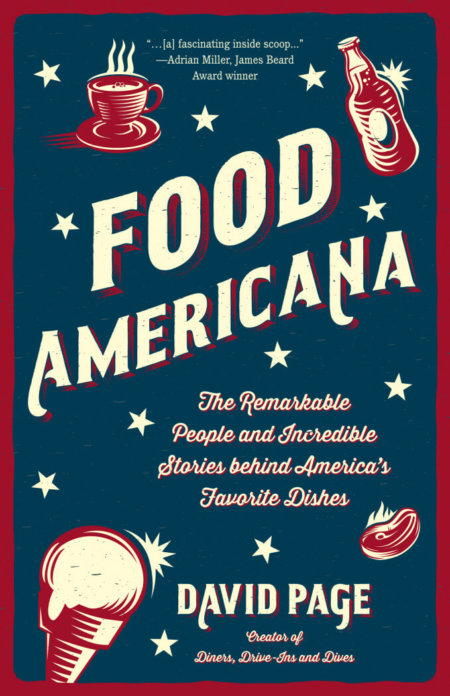


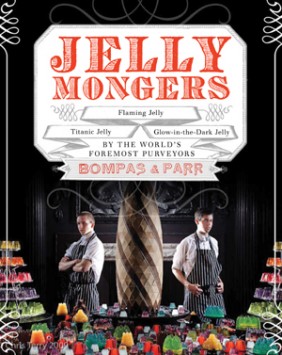
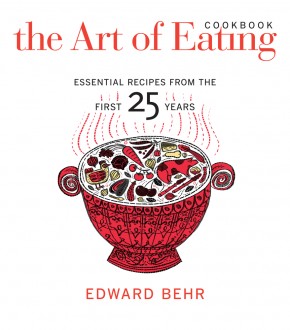
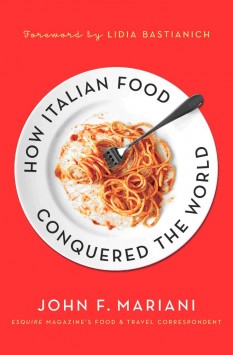
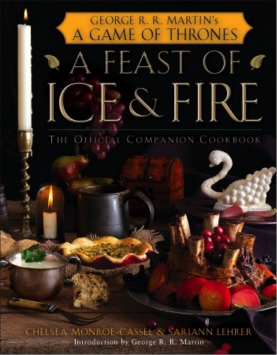
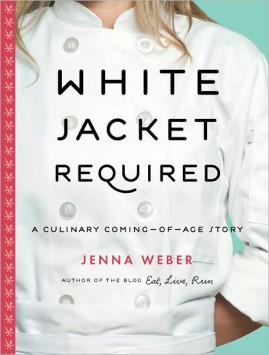
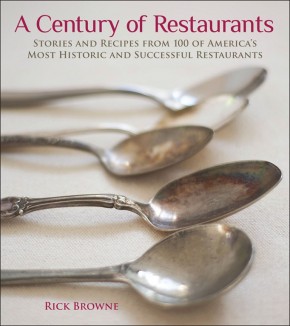
Leave a Reply